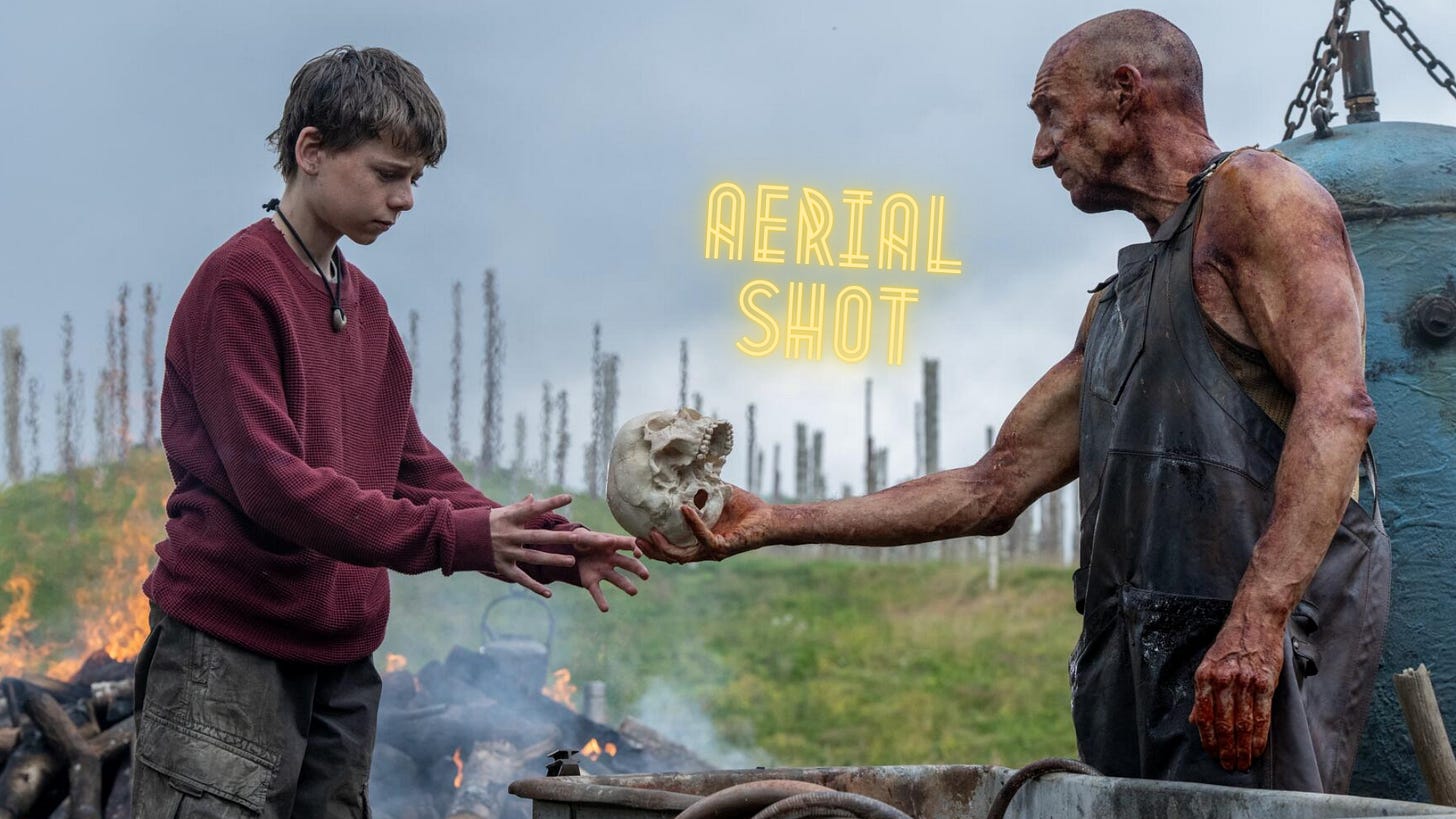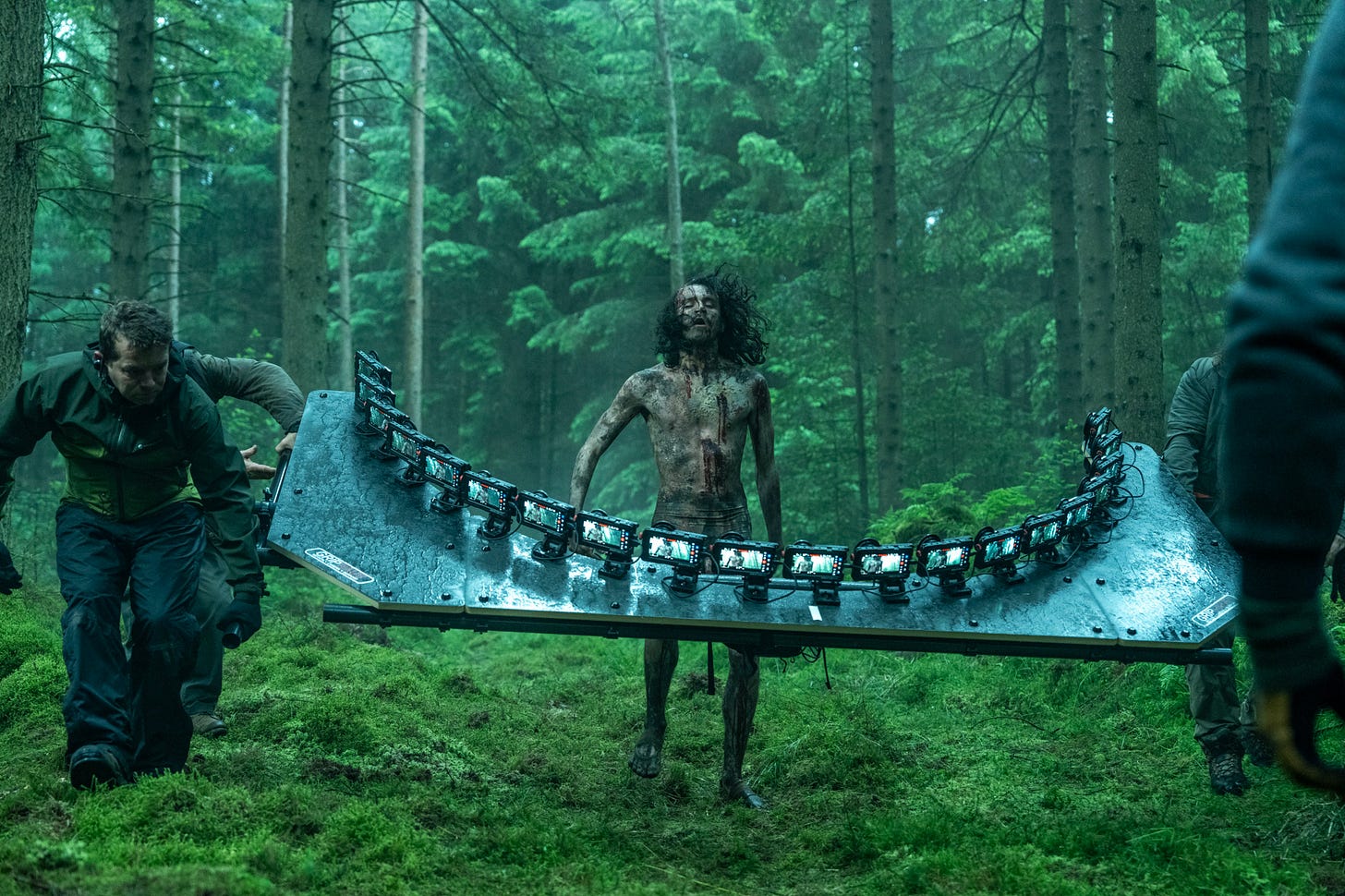The worst thing you can do on a first date—as I’ve learned time and time again—is be boring. At a certain point, everyone’s been asked enough about how long they’ve been in the city, how many siblings they have and what they do over the weekends. After enough meh conversations, you sometimes have to take a break and regroup, figure out what’s next and what you actually want to say.
Which brings us to Danny Boyle, a Hall of Fame director who’s made 28 Days Later, Slumdog Millionaire and 127 Hours, but then brought us the reprehensible Yesterday and decided it was time for a little break.
After clearing his head and (presumably) taking some nice, long walks, Boyle went back to basics, working once again with his old friend Alex Garland and providing us with one of the gnarliest zombie epics in recent history. It took eight years to recover from his “What would happen if everyone forgot The Beatles?” mistake, but here we are with the remarkably fun, shockingly messy 28 Years Later.
Simultaneously, a treatise on Brexit/isolationism, the COVID pandemic, organized religion and what masculinity means nowadays, Garland’s sharply defined three-act script would topple over under lesser hands. There’s so much this movie has on its mind, and yet, it never disintegrates under its own pressure. There’s a real push and pull between Boyle’s “let’s figure it out” filmmaking and Garland’s big-ticket ideas.
And yet the thing that immediately stood out to me was its continuous editing, cutting so much as to leave its viewer off-balance without ever being confusing, which is quite the feat. There’s stuff here I’ve never seen before, from its wide chase scene through a water causeway to the zombie POV, constantly forcing you to keep watch for the characters.
Perhaps my favorite trick was Boyle and editor Jon Harris threading in various clips and historical interludes, which didn’t directly relate to the movie’s plot but kept with a theme and its breakneck pace. These clips pushed the story’s momentum and were exhausting in the best way. Unlike the purposefully ugly and grainy 28 Days Later, this sequel is shot gorgeously with a ridiculous number of iPhones, which allow for a clearer picture and the ability to find more camera angles than usual.
The story starts semi-normally with a small but resonant vignette and then a coming-of-age mission; however, things go in directions that you never expect, including a third-act takeover from the always-phenomenal Ralph Fiennes.
I feel like Garland’s writing has been misconstrued as of late. I thought his recent Warfare was a pretty solid war-is-hell exercise—well, at least until the confounding credits—and Civil War was one of my favorite theatrical experiences in 2024. He’s constantly dinged for being too on-the-nose and ridiculous, but that all feels appropriate for the times we’re living, which are constantly … too on-the-nose and ridiculous.
Despite a mostly linear story and pretty clear moralities, I can see the mishmash and allegorical workout that is 28 Years Later annoying casual filmgoers and those looking for a purely entertaining zombie romp. This has a lot more on its mind than that, is emotionally overwhelming at times, and I’m grateful that Boyle is back doing what he does best, finding really fucked up ways to convey exisential dread through sci-fi-ish stories.
I always prefer a bit of mess to boring, and am glad something like this can still be made with a big budget.
At this point, it’s been a wishy-washy year for action. There’s the good, like Sinners and now 28 Years Later, but you also have to look at the constant garbage that we’ve been Clockwork Orange’d with so far.
Hopefully, this’ll be a bit of inspiration for other filmmakers trying to make blockbusters with a bit more thought than usual. 28 Years Later is showing up at the box office, and if this encourages other directors to go for it (and make things thornier while trying new things), the movies are in a good place.
Call me Marie Kondo, because I love mess.



